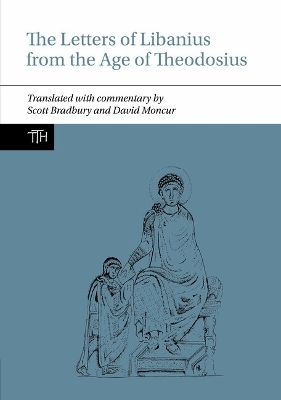
The Letters of Libanius from the Age of Theodosius
Seiten
2024
Liverpool University Press (Verlag)
978-1-83553-807-4 (ISBN)
Liverpool University Press (Verlag)
978-1-83553-807-4 (ISBN)
Libanius of
Antioch (AD 314-93), teacher, rhetorician and eloquent exponent of Greek
paideia, was one of the most prolific letter writers of late antiquity with
more than 1500 surviving letters from an even greater total. This volume
contains the first English-language translation of all the letters written
between 388 and 393, which provide insights both into his professional and
personal circumstances and the changes taking place in the political, religious
and social environment of the late fourth century. The letters while fulfilling
many of the usual functions of late antique correspondence as vehicles in
creating or maintaining friendship networks, promoting relationships with men
in power, supporting rhetoric and Hellenic learning and seeking favours for
friends, students and protégés, also reveal Libanius’ reaction to his
circumstances at the end of his life – his waning influence as a teacher, the
hostility directed towards him by factions in Antioch and in Constantinople,
the loss of friends and loved ones, in particular his son, and his ill health
and impending mortality.
Antioch (AD 314-93), teacher, rhetorician and eloquent exponent of Greek
paideia, was one of the most prolific letter writers of late antiquity with
more than 1500 surviving letters from an even greater total. This volume
contains the first English-language translation of all the letters written
between 388 and 393, which provide insights both into his professional and
personal circumstances and the changes taking place in the political, religious
and social environment of the late fourth century. The letters while fulfilling
many of the usual functions of late antique correspondence as vehicles in
creating or maintaining friendship networks, promoting relationships with men
in power, supporting rhetoric and Hellenic learning and seeking favours for
friends, students and protégés, also reveal Libanius’ reaction to his
circumstances at the end of his life – his waning influence as a teacher, the
hostility directed towards him by factions in Antioch and in Constantinople,
the loss of friends and loved ones, in particular his son, and his ill health
and impending mortality.
Scott Bradbury is Professor Emeritus of Classical Languages and Literatures, Smith College, USA. His previous publications include Selected Letters of Libanius from the Age of Constantius and Julian (Translated Texts for Historians, Liverpool University Press 2004). David Moncur is an independent scholar; his previous publications include (with Peter Heather)Politics, Philosophy and Empire: Select Orations of Themistius (Translated Texts for Historians, Liverpool University Press, 2001).
| Erscheinungsdatum | 14.08.2024 |
|---|---|
| Reihe/Serie | Translated Texts for Historians ; 82 |
| Zusatzinfo | black and white map |
| Verlagsort | Liverpool |
| Sprache | englisch |
| Maße | 147 x 210 mm |
| Themenwelt | Geschichte ► Allgemeine Geschichte ► Mittelalter |
| Geisteswissenschaften ► Sprach- / Literaturwissenschaft ► Anglistik / Amerikanistik | |
| Geisteswissenschaften ► Sprach- / Literaturwissenschaft ► Literaturwissenschaft | |
| ISBN-10 | 1-83553-807-X / 183553807X |
| ISBN-13 | 978-1-83553-807-4 / 9781835538074 |
| Zustand | Neuware |
| Informationen gemäß Produktsicherheitsverordnung (GPSR) | |
| Haben Sie eine Frage zum Produkt? |
Mehr entdecken
aus dem Bereich
aus dem Bereich
eine neue Geschichte des Mittelalters
Buch | Hardcover (2023)
C.H.Beck (Verlag)
38,00 €
Geschichte einer Augsburger Familie (1367-1650)
Buch | Softcover (2024)
Kohlhammer (Verlag)
34,00 €


